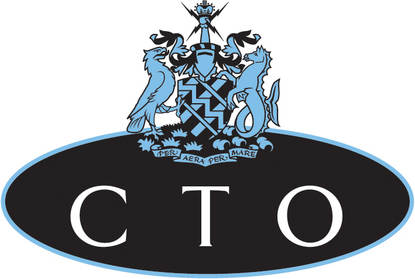LONDON ( MEDIA REPORT )
Anusha Rahman Ahmad Khan, minister of state for information technology, Pakistan, and Shola Taylor, secretary-general of the Commonwealth Telecommunications Organisation (CTO), led calls for greater international collaboration on spectrum issues on the opening day of the Commonwealth Spectrum Management Forum’17 which took place in London on 25 – 27 October.
The event is convened to enable international bodies, policymakers, telecoms regulators and experts from across the Commonwealth to come together and share experiences in spectrum management.

“As we in Pakistan become more successful in connecting our citizens to the Internet, so the demand on the spectrum increases,” said Minister Khan. “We are also looking to the future deployment of 5G and new technologies, so the use of new bands and spectrum sharing are ideas we will need to initiate. I call on the CTO to lead the way in sharing good practices and bringing different stakeholders together to collaborate.”
Minister Khan was speaking at the leaders’ session on day one of the event alongside Shola Taylor, Paul Lewis, minister of communications, works & labour, Montserrat, Chris Woolford, director of international spectrum policy, Ofcom, Fabio Leite, vice-president, regulatory & market access, Inmarsat, and Austin Nwaulune, director, spectrum administration, Nigerian Communications Commission. The leaders’ session followed the opening ceremony which was addressed by Mario Maniewicz, deputy director, radio communications bureau, International Telecommunications Union, Philip Marnick, group director, spectrum, Ofcom, and Michele Franci, chief technology officer, Inmarsat.

“As we move towards 5G, we have the opportunity to manage the spectrum differently,” said Chris Woolford. “Spectrum sharing is an increasingly viable option, but it requires cooperation. We need to work together – across countries, regional borders and industries – in order to find solutions on the sharing of bands.”
“With the increasing importance of spectrum to the international community, the structure provided by the WRC and the radio regulations remains of increasing importance to international spectrum management,” said Mario Maniewicz. “I call on the Forum delegates and all members of the CTO to engage in the regional and Commonwealth discussions leading up to WRC-19 in order to develop consensus and bring together a broad range of nations to a common understanding.”
The theme of the Commonwealth Spectrum Management Forum’17 was Internet of Things & Basic Broadband Access: Spectrum Implications with discussion also covering subjects such as the future of broadcasting and spectrum implications, efficient spectrum utilisation, spectrum auctions, 5G issues and spectrum requirements and planning for the world radiocommunication conference (WRC) in 2019 [1]. The event was hosted by Inmarsat, with industry participants including GSMA, Huawei, Avanti and Facebook.
“The CTO is mandated to coordinate ICT activities across the Commonwealth,” Mr Taylor said in response to the call from Minister Khan. “Alongside events such as this Forum, which are convened to facilitate good practices in spectrum management, we also coordinate Commonwealth views for the WRC in order to inform our members of the issues and processes, and also to facilitate wider international agreement at the meeting. We will increase our role in this important area as the international community strives to ensure that spectrum facilitates socio-economic development throughout the Commonwealth.”
Speakers and delegates agreed on the need for collaboration in the following areas:
- International processes – the guidance offered by the ITU in the form of the WRC and radio regulations assists nations in their spectrum management efforts and likewise benefits from the inputs of national, regional and pan-Commonwealth views.
- Spectrum sharing – new technologies offer increasing opportunities for efficient spectrum sharing leading to more efficient use of spectrum.
- Best practices – with much good work on spectrum management taking place throughout the international community, countries will benefit from a collaborative platform to share effective techniques.
- Cross-industry – companies should work together within and across sectors to ensure the benefits of the digital society offered by current and future technologies are accessible to all.
The spirit of international cooperation was further enhanced by the presence of the Commonwealth Deputy Secretary-General, Dr Josephine Ojiambo, who joined delegates at the close of the event to express the Commonwealth Secretariat’s support for the CTO’s work promoting dialogue, information sharing and consensus building in ICTs.
“The Commonwealth Secretariat recognises the potential that more widespread access to broadband can have in driving socio-economic development,” Dr Ojiambo said. “Greater digital connectivity benefits both small and big businesses alike, which in turn boosts jobs growth and by extension economic growth. Digital connectivity also plays a vital role in the event of natural disasters, allowing government authorities to better coordinate disaster relief efforts through the dissemination of information. The Secretariat will continue to offer its full support to the CTO, to member states and to civil society organisations as we seek to continue multistakeholder dialogue. Through working together, we can unleash the power of digital connectivity to drive pragmatic, safe and fair socio-economic development.”
For more information please contact Emma Killick, [email protected] or +44 (0)20 8600 3813.
[1] The world radiocommunications conferences (WRC) are held every three to four years to review and, if necessary, revise the Radio Regulations which govern the use of the radio-frequency spectrum and the geostationary-satellite and non-geostationary-satellite orbits. The Forum heard updates from the ITU on preparations for the next meeting taking place in 2019 and also from regional groups on their discussions. The CTO membership includes representatives of all the ITU regions and so working to reach a pan-Commonwealth consensus on WRC agenda items facilitates consensus at the WRC.

